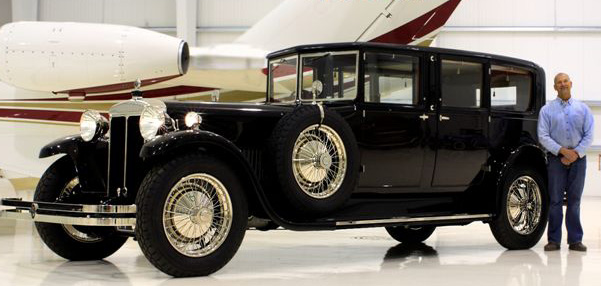State of the Hobby: Restorers weigh in
Is a collector car restoration in your plans this year? Three experts offer their take on current trends in the restoration market and their best advice for undertaking a new project.
Paul Dierschow runs Sports Car Craftsmen in Arvada, Colo., which specializes in British marques, particularly MG. Kevin Mackay owns Corvette Repair Inc. in Valley Stream, N.Y., a recognized leader in all types of Corvette work. And Bob Lorkowski is the founder of L’Cars Automotive Specialties in Cameron, Wisc., which offers full restorations and also custom fabricates parts for just about every car out there, from hot rods to full classics.
Q: Have you seen significant changes or trends in the types of projects coming in over the last few years?
Paul Dierschow: People who were once enthusiastic about a high-dollar restoration have evaporated. Now it’s very much about one step at a time. The number of jobs hasn’t dropped; it’s just that the average job has gotten smaller.
Kevin Mackay: We’ve been booming, and we have cars from all over the country coming in. We’ve been lucky enough to have a lot of great Corvettes come through the doors. We have a small facility here, and if you stay small, you stay real busy.
Bob Lorkowski: I see more clients buying great cars at respectable prices and leaving them as purchased. We’re a versatile shop that does everything in-house, so we have the good fortune of getting many unique metal fab, woodworking and upholstery projects to fill the void between frame-off restorations.
Q: Is there an increase in clients doing their own restorations rather than hiring someone to do them?
Dierschow: People either have an inclination to do that or they don’t. But no one really takes a sudden interest in this sort of thing.
Mackay: No, not in my business. A lot of serious collectors with some of the very best cars come to us because they want the very best, and they can’t achieve that on their own. It’s not a question about money; it’s a question of who’s the best guy for the job.
Lorkowski: Several clients with larger collections have added support staff for their curators and are acting as general contractors on their own projects. They’re using specialists for some phases and their own people for assembly. I know the hours are the same, if not more, but they save considerably with the labor rate difference.
Q: Are specific restoration projects more dominant than others?
Dierschow: There aren’t any central themes. We do anything from brake jobs and tune-ups to frame-off restorations. You name it, we do it, so it’s a smattering of everything.
Mackay: We’re known for our restorations, but we do regular repair and service, too. We like that street stuff because it pays the bills, too.
Lorkowski: We get a lot of mechanical restorations due to poor storage habits as well as auction cars that are not safe for road use.
Q: What do you see happening in the future?
Dierschow: I wish I had a crystal ball for that. One day we’ll be very vibrant, and another we’ll be dead as a doornail.
Mackay: The cars worth restoring are the very rare, significant cars — cars with special transmissions or engines, and there will always be a demand to restore those cars.
Q: What advice do you have for someone starting a restoration?
Dierschow: Don’t do it! Not really. Just be prepared for it. Most people don’t have a clue as to what things cost. But half of my job is to be an educator, to teach customers why whatever the job is costs what it does. Doing a car right costs money.
Mackay: It’s always cheaper to buy one done than to pay to have it restored. That said, make sure it’s a desirable car from a desirable year. Have concrete documentation, preferably with the original engine. Watch out for phony paperwork and fraudulent trim and VIN tags. There’s no such thing as too many questions, because you’re going to be spending a lot of money.
Lorkowski: Do a car you like. Drive it, show it, enjoy it! Ten percent of the cars will be good financial investments, but only if they are done right. Study the websites for potential restoration shops, but study the content and projects, too. There are lots of great sites out there, but some are quite deceptive in content, so it’s best to get references.


